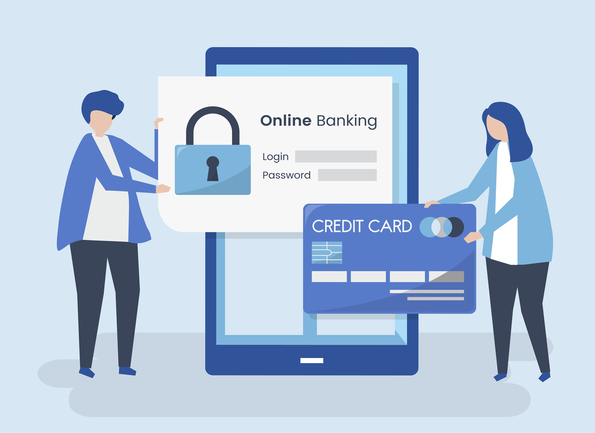
The Role of Credit History Checks in Background Screening
Depending on the employment, your credit history may be considered when deciding whether to hire you. Employers are increasingly using credit history verification to select qualified candidates.
Background checks are common for firms of all sizes, including those in the sharing economy. If you're applying for a job, you'll probably be asked to approve a background check at some point in the application process.
In addition to verifying your identity, suspicious activity, criminal history, and driving history, employers may also run a credit background checks report. This depends on your position, where you'll be working, and whether you'll have any fiduciary obligations.
A credit profile is different from a credit check. An actual credit score is a straightforward three-digit number that assesses the state of your credit accounts. An annual credit report includes specifics on your balances, available credit, time payments, prior payments, payment history, financial health, bills on time and information about your credit history.
Your credit health score won't be shared when a credit report is requested for employment-related reasons. Always be cautious with your credit score history, because a bad credit score can result in a credit freeze.
Credit score verification is typically performed for jobs with financial responsibility or when an employee has unrestricted access to possessions or cash. Trade secrets are included here.
Why Do Employers Run Credit Checks?
Employers run credit history checks primarily for two reasons: responsibility and safety.Security: Credit reports confirm a person's identification and history. These two elements are crucial to a background investigation.
Responsibilities: A high credit score checks demonstrates sound monetary management. Employers look for candidates who are trustworthy and have integrity.
The credit history of a candidate who possesses this trait may interest employers searching for job applicants with this trait.
Check Pricing For an Applicant's Credit History Background Screening Report
What Potential Concerns Might An Employer See On Your Credit Report?
During employer credit checks many employers may consider it a concern in your credit record.- Employment History: A potential employer can be concerned if a credit report contains false or contradictory information, even though employment information is frequently unreliable and not used to determine hiring choices.
- Late Payments: A trend of late payments is cause for concern. This may indicate to a potential employer that you lack organizational skills or have trouble meeting deadlines, among other things.
- Charge-offs and debt collection: If you don't pay for more than 180 days, your creditor may decide to charge off your loans. The debtor has two options: sell the debt to a collection agency or collect it independently. This behavior exposes your employer to security risks and is a symptom of financial strain.
- Foreclosures: Finding a solution to make a bad situation better is challenging. You must be able to justify your decisions to reassure an employer.
- Liens: Liens may be a sign of carelessness or that you lack the initiative to negotiate a settlement.
- Lawsuits: Creditors may sue you if they do not receive payment. Your credit report will reflect these lawsuits for seven years.
How Can You Prepare For A Credit Review?
Take a big breath first. Many major Credit Bureau and financial institutions recognize that horrible things may happen to decent people because they have had credit issues. Keep the following in mind:- If they check your credit, they are considering you. They wouldn't spend the time and money to screen you if you didn't make an impression. The news is good.
- The majority of your worries won't even concern your employer. Most employers look for signs of dishonesty and financial irresponsibility, which could disqualify you from the job or make it unacceptable.
Check your credit report every month: You are entitled to one free credit report each year from each of the three main credit agencies under the Fair Credit and Reporting Act. Take ownership of your data by being accountable for it. Running your credit rating report will help you prepare for any inquiries you might get.
Fix any errors that you find: Credit monitoring reports are not uncommon to have errors. You should check it regularly. Contact the credit reporting agency to settle any issues.
Third: Make sure everything you tell the employer is true and accurate to avoid surprises when your credit report comes in.
Screen Your Applicant's Credit History Now to Get a Complete Report
Credit Checks As Part Of The Bigger Screen Picture
There are many types of credit checks, in fact consumer credit report background checks are one step in a more thorough background investigation procedure. Depending on the job and company, during the hiring process, apart from financial checks on financial history, you can also be asked for information about your driving records, previous employer details, social security number, or criminal records background.
If you have lived or worked overseas, you can be asked to submit to a global background check. You need to do each of these checks. Correct any errors and always be truthful when speaking with prospective employers.
2023-05-08 13:25:36
Leave a Reply